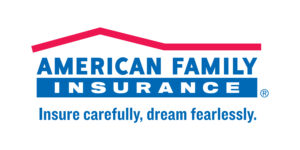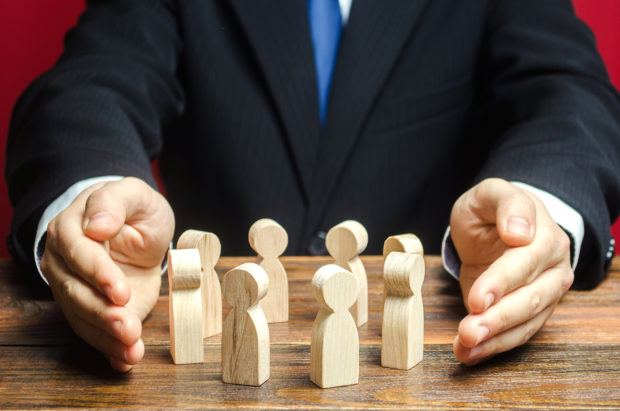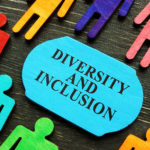If they want to make any real progress on diversity and inclusion, organizations need to “create a safe space” for people to have difficult conversations and find a way to demonstrate allyship. That’s the advice LGBTQ+ pioneer and retired U.S. Navy Commander Zoe Dunning offered during her Oct. 29 panel at the IICF Inclusion in Insurance Forum.
Dunning was serving as a Navy reservist when she decided to come out publicly to protest the ban on gay service members. She was subjected to two discharge hearings while simultaneously being promoted to lieutenant commander. After winning her second hearing under “Don’t Ask, Don’t Tell,” she spent the next 13 years as the only openly gay member of the U.S. military. She also worked on getting the law overturned—which finally happened December 2010. She retired after 22 years of service and is currently consulting portfolio director at Future State.
Dunning said her life on active duty was “very compartmentalized” as she tried to keep her private life separate from her work life in the Navy, which she described as “death by a thousand tiny cuts.” It also made it very difficult to create connections at work.
After she came out, Dunning’s reserve unit was initially concerned because they didn’t want to lose her; she was a good shipmate and officer. But some of them also worried she was trying to embarrass the military. Some called her a disrupter and questioned why she had to come out in such a public forum.
“How many times have we been seen as sort of like disrupters or radicals, when we’re actually trying to better the entire organization? It’s not about us,” Dunning said. “It’s not about the LGBTQ community. It is about creating a greater pool and making the military stronger. It’s about creating that diversity of thought. It’s about making us more inclusive…”
She likened it to the Black Lives Matter movement, where many people respond by saying that all lives matter. “All lives do matter. No one’s debating that. But the analogy that I’ve heard that I like to say a lot is, if you’re a lifeguard and you’re at a swimming pool, everyone’s life matters…If you have someone drowning on one end of the pool, that’s where you’re going to take time and energy. Who’s struggling? Who is drowning? Who needs attention? Who in our society has got weights literally pulling them down in the pool?”
“It’s not a zero sum game,” Dunning noted, “so giving rights to everyone does not take away your own rights. It’s about creating a society that we all can be proud of, where we can all be ourselves and have the same opportunities to succeed and thrive.”
Relationships Matter
Dunning said a big part of creating that society is building relationships. She shared a story about a consulting colleague named Ross. She was forced to come out to Ross after being recognized and thanked by a receptionist during one of their consulting trips. Ross had no real knowledge of the LGBTQ+ community and believed he had “never met anyone gay before,” but he did have an open mind and heart. The two spent the next three months working on the project while also having in-depth conversations and really getting to know each other. She learned about his life as a devout Mormon, while Ross asked what it was like to be gay or lesbian. Dunning noted how important it was to have that sort of one-on-one connection.
Dunning’s relationship with Ross taught her that while macro, policy-level changes are certainly important, “you have to do it hand-in-hand with that interpersonal relationship, those one-on-one interactions. That’s how you change hearts and minds. That’s how you change cultures. That’s how you change opinions. And that’s really also necessary as we, as a society, look to how we right our wrongs and where we need to make an impact.”
Dunning suggested two possible calls to action: creating a safe place in your organization for these difficult conversations and finding a way to show your “allyship” that goes beyond words. (Allyship is showing your support for an oppressed or marginalized group and working to advance their interests. It can begin with something as simple as wearing a gay pride button or hanging a Black Lives Matter sign.)
“It’s fine if you take your own personal initiative and say, ‘Hey, so-and-so, want to go out to lunch?’ But I’ve seen some really successful programs. One of them is called Two by Two, where two people take two people out to lunch”—for example, two LGBTQ+ or Black employees volunteering to answer questions. It’s all about creating an open and safe environment.
However, while Dunning urged panel viewers to seek out those safe interactions, she also warned against the tendency to see individuals as the spokesperson for the group. “What you have to understand is when you approach someone with curiosity and empathy, they can talk about their own personal experience, but don’t think that they speak on behalf of whatever group that they’re representing in your mind…You’re just asking for one person’s perspective.”





















 NYC to Install Red Light Cameras at 600 Intersections by Year End
NYC to Install Red Light Cameras at 600 Intersections by Year End  Marine Insurers Cancel War Risk Cover as Iran Conflict Escalates
Marine Insurers Cancel War Risk Cover as Iran Conflict Escalates  Beyond Automation: The Emerging Role for Contextual AI in Insurance
Beyond Automation: The Emerging Role for Contextual AI in Insurance  From Skill to System: The Next Chapter in Insurance Claims Negotiation
From Skill to System: The Next Chapter in Insurance Claims Negotiation 

